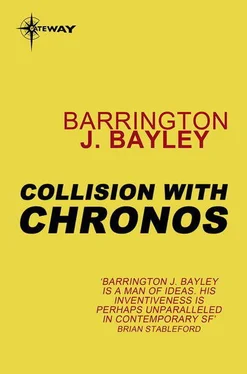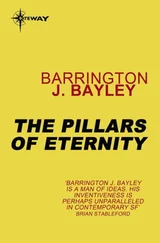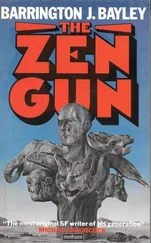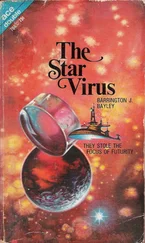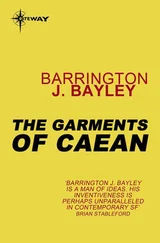A logician raised his hand, was recognised and rose to speak.
“The accused commits an inconsistent statement with his tale of how he induced his son to guide him down to the Production Retort,” he said in a low, melodious voice. “The facts are these: Hueh Shao and Hueh Su-Mueng were apprehended while leaving the area where Hueh Shao was incarcerated. Hueh Shao admits to this. But as regards his statement of his intentions, Hueh Shao must certainly have known that he and his son would be apprehended before leaving the Leisure Retort – although Hueh Su-Mueng, possibly, did not. Hueh Shao couldn’t have intended to do something which he knew to be impossible, and therefore his intentions were otherwise.”
“And what were his intentions?” Hwen Wu queried.
“Taking everything into account, it would appear that Hueh Su-Mueng appeared unexpectedly in his father’s apartment and released him from his time-displacement. Hueh Shao was then in a quandary; he knew his son’s scheme to be impossible to execute, and that his son was laying himself open to severe punishment. From that moment on his foremost intention became to spare his son from this punishment – remember the unusual bond that exists between these two, unnatural though it might seem to us. He pretended to fall in with Hueh Su-Mueng’s plan, in order that he might thereby represent himself as its part-instigator and remove some of the guilt from his son’s shoulders.”
Hwen Wu turned to the accused.
“Do you admit to this version of events?”
Hueh Shao nodded; the logician had mercilessly exposed his motives.
“Hueh Shao’s following statement, however, stands up to examination,” the logician continued. “Hueh Su-Mueng’s aberrated state of mind is to be laid entirely at his door. But whether we should conclude from this that no punishment devolves upon the younger man is an entirely different matter. One cannot dismiss the principle of personal responsibility so lightly.”
The Prime Minister listened carefully to these pronouncements, considering them from all angles. Finally he turned to the accused again.
“I find you guilty of cooperating in your own escape, but not of instigating your escape,” he said. “Your actual infringement, in this particular instance, of a city ethic is not an enormous one, but that’s not the issue before us here. The issue is that your original crime, one of truly serious proportions, has surfaced again. You’ve created an individual of apparently irremediable criminal tendencies – already, in his preliminary statements, your son has expressed himself as being totally opposed to the social structure.”
He fingered the tendrils of his beard, contemplating. “Your crime is unforgivable because it strikes at the roots of society,” he proclaimed. “If allowed to gather force it could destroy the civilisation we enjoy here in Retort City. Nevertheless, your sentence was a lenient one, initially, because it was the first case of its type to occur for many centuries. We must now withdraw that leniency. I regret that I must sentence you to loss of life.” He looked calmly at Hueh Shao. “Do you agree with the sentence?”
Hueh Shao nodded. He could almost see what was in the Prime Minister’s mind. The sentence was not merely on himself; it gave Hwen Wu a way of punishing Su-Mueng without directly punishing him. The principles of fairness and justice were both satisfied, even though they were in conflict.
“Then let the sentence be carried out immediately.”
Hueh Shao turned and walked out through a door to his right.
A minute or two later Su-Mueng took his place before the court. He listened to the formal charge, pleaded guilty, but in his following statement firmly absolved his father of all guilt in the matter.
Meantime, in a nearby room, Hueh Shao relaxed into a chair-couch and was handed a bowl of refreshing green tea.
The bowl was of the most delicate porcelain and its embossed design, a mere tracery when touched by the fingers, was of a style he particularly admired. He sipped the tea, enjoying its fragrance. A feeling of numbness, not particularly unpleasant, came over his limbs as the poison in the tea took effect. He laid the bowl down on a nearby low table, the tea still unfinished, and quietly died.
In a cold voice Hwen Wu accepted Su-Mueng’s plea and explained the verdict and sentence that had just been passed on his father. “The sentence,” he added, “will by now have been carried out.”
Su-Mueng’s reaction to this news inflicted the whole court with a faint feeling of revulsion, for it demonstrated the emotional bond that existed between two men who should never even have known one another. Su-Mueng went deathly white and sagged as though punched in the stomach. He recovered himself with difficulty, drawing himself erect, his face still grey, and looked Hwen Wu straight in the eye.
“Damn you,” he said in a strangled voice. “Damn you all. Your whole system is evil – and one day it will be destroyed.…”
The President of the Court nodded. “We’re acquainted with your opinions, and of their causes. We’re aware also that your attitudes are intractable, which raises the problem of what we’re to do with you. Punishment is inappropriate, because insofar as punishment is deserved it’s already been inflicted in the form of your knowledge that your actions have led to your father’s death. We cannot permit you to live in the Leisure Retort, since that would transgress the law; yet if we return you to the Production Retort, which is your proper place, you’ll no doubt continue to cause trouble. So the question remains, what are we to do with you…?”
Leard Ascar had been obsessed, from an early age, with only one question.
The question of time.
He could remember the day – it had been his tenth birthday – when the full force of the enigma had first struck him. The dilemma, the paradox, the impossible, irreconcilable paradox. The transient present, moving from a past that vanishes into a future that appears from nowhere. And even more perplexingly, what he later came to know as the Regression Problem: how can time “pass” without having “time” to pass in?
These enigmas drove out all his other interests. He read everything he could understand on the subject, and then studied physics and mathematics so as to understand what was left. He was precocious, ahead of his class in all the subjects he took. He never made any friends, but could have had a brilliant career in almost any branch of physics, had he not preferred to devote himself to unsuccessful, self-financed researches into the nature of time. Among more conventional minds he gained a reputation as a crank, an oddball, and his experiments had regularly ground to a halt for lack of any further money.
Then he had come into contact with the scientific establishments of the Titanium Legions and they, to give them their due, had made it possible for him to continue his work. Following the victories over the deviant subspecies there had been a splurge of boastful expansionism in the sciences, a feeling that True Man could achieve anything. Not only Ascar but real cranks, near-psychotics with the most extraordinary and fanciful theories, had been allotted funds to bring their ideas to fruition. And so he had made some small progress, until that incredible day when the real nature of the captured alien vehicle had become evident.
That day had been a climax in Ascar’s life. A second climax came on the day he was introduced to Shiu Kung-Chien, the foremost expert on time in a city that had mastered nearly all its secrets.
That he had been trained to regard individuals of Shiu Kung-Chien’s race as subhuman did not bother him. He would gladly have sat at the feet of a chimpanzee if it could have taught him what he wanted to know.
Читать дальше
